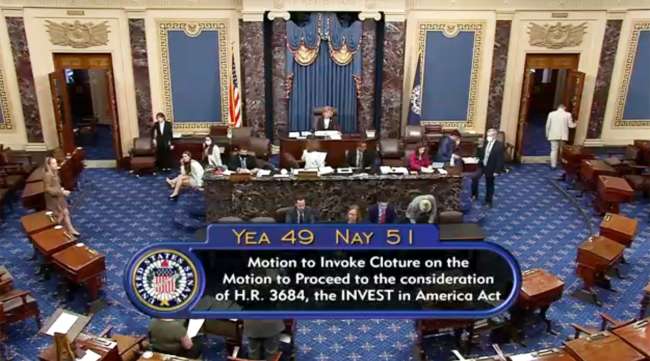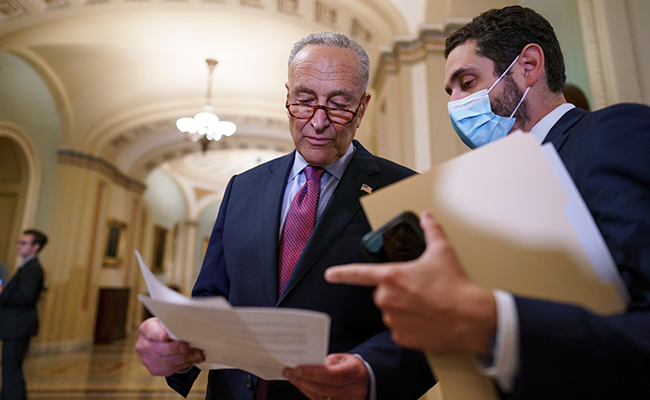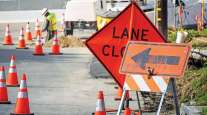Associated Press
Infrastructure Bill Fails First Test Vote

[Stay on top of transportation news: Get TTNews in your inbox.]
WASHINGTON — Senate Republicans rejected an effort July 21 to begin debate on a big infrastructure deal that a bipartisan group of senators brokered with President Joe Biden. But supporters in both parties remained hopeful of another chance in coming days.
Democratic Majority Leader Chuck Schumer of New York had scheduled the procedural vote that he described as a step to ”get the ball rolling” as talks progress. But Republicans mounted a filibuster, saying the bipartisan group needed more time to wrap up the deal and review the details. They sought a delay until July 26.
The party-line vote was 51-49 against proceeding, far short of the 60 “yes” votes needed to get past the Republicans’ block. The Democratic leader switched his vote to “no” at the end, a procedural step that would allow him to move to reconsider.
The nearly $1 trillion measure over five years includes about $579 billion in new spending on roads, broadband and other public works projects — a first phase of Biden’s infrastructure agenda, to be followed by a much broader $3.5 trillion second measure from Democrats next month.
Sen. Rob Portman (R-Ohio), a lead negotiator, flashed a thumbs-up sign as he ducked into a private lunch before the vote, indicating the senators had sent Schumer a letter seeking more time. “We will be ready by the end of this week,” he said during a CNBC interview.
Six months after Biden took office, his signature “Build Back Better” campaign promise is at a key moment that will test the presidency.
Biden, who headed to Ohio later July 21 to promote his economic policies, is calling his infrastructure agenda a “blue-collar blueprint for building an American economy back.” He has said that Americans are overwhelmingly in support of his plan.
However, Senate Republican leader Mitch McConnell of Kentucky has said big spending is “the last thing American families need.”
White House aides and the bipartisan group of senators have huddled privately every day since July 18 trying to wrap up the deal, which would be a first phase of an eventual $4 trillion-plus package of domestic outlays — not just for roads and bridges, but foundations of everyday life including child care, family tax breaks, education and an expansion of Medicare for seniors.
The next steps are uncertain, but the bipartisan group insists it is close to a deal and expects to finish soon. The senators were joined for a private lunch ahead of the vote by the two leaders of the House’s Problem Solvers Caucus, a bipartisan group generally supportive of the effort.
Senators from the Republican side asked to delay the vote, and 11 Republicans signed on to a letter to Schumer saying they would support moving forward with a yes vote July 26, if certain details about the package are ready.
Schumer said senators are in the fourth week of negotiations after reaching agreement on a broad framework for infrastructure spending with the White House. He said the July 21 vote was not meant to be a deadline for having every detail worked out.

Senate Majority Leader Chuck Schumer, D-N.Y., looks over his notes as he talks to reporters. (J. Scott Applewhite/Associated Press)
“My colleagues are well aware that we often agree to move forward with debates on issues before we have the text in hand,” Schumer said. “We’ve done it twice this year already.”
McConnell called the vote a “stunt” that would fail, but emphasized senators were “still negotiating in good faith across the aisle.”
“Around here, we typically write the bills before we vote on them,” he said.
Associated Press writers Alan Fram, Darlene Superville and Josh Boak contributed to this report.
Want more news? Listen to today's daily briefing below or go here for more info:




